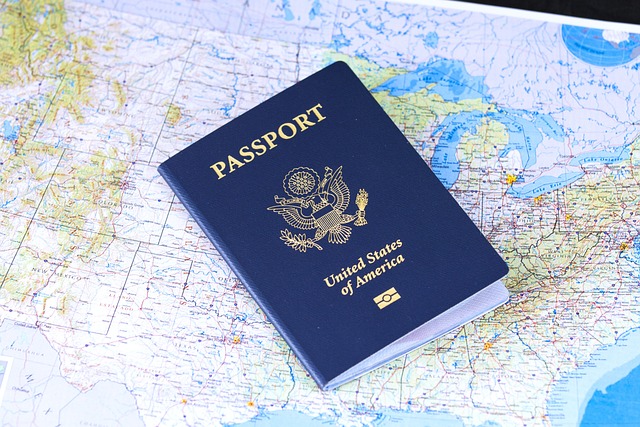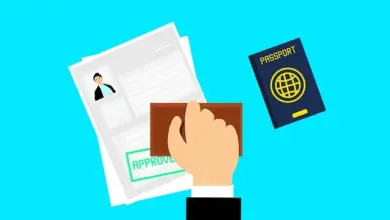How to Appeal a Visa or Residency Denial

Receiving a visa or residency denial can be a frustrating and stressful experience, especially if you’ve invested significant time, effort, and resources into your application. However, it’s important to remember that a denial is not necessarily the end of the road. Most countries, including Belgium, provide a formal appeals process that allows applicants to challenge the decision. In this guide, we’ll walk you through the steps to appeal a visa or residency denial effectively.
1. Understand the Reason for Denial
The first step in appealing a visa or residency denial is to understand why your application was rejected. The immigration authorities will typically send you a written notification explaining the grounds for their decision. Common reasons for denials include:
- Incomplete Documentation: Missing or incorrect paperwork.
- Ineligibility: Failure to meet specific requirements (e.g., financial stability, qualifications, or purpose of stay).
- Misrepresentation: Providing false or misleading information.
- Security Concerns: Criminal records or perceived risks to public safety.
- Quota Limits: Exceeding the number of visas/residencies available for a particular category.
Carefully review the rejection letter to identify the exact reason(s) for the denial. This will help you determine whether an appeal is feasible and how to address the issue.
2. Check the Appeals Process and Deadlines
Each country has its own procedures and timelines for appealing visa or residency decisions. In Belgium, the process may vary depending on the type of visa or permit involved. Here’s what you need to know:
- Timeframe: You usually have 30 days from the date of the denial to file an appeal. Missing this deadline could result in losing your right to contest the decision.
- Authority Handling Appeals: In Belgium, appeals are typically submitted to the Aliens Office (Office des Étrangers) or the relevant administrative tribunal, such as the Council for Alien Law Litigation (CALL).
- Legal Representation: While not mandatory, hiring an immigration lawyer or consultant can significantly improve your chances of success, especially if the case involves complex legal arguments.
3. Gather Supporting Evidence
To strengthen your appeal, you’ll need to compile additional evidence that addresses the reasons for the denial. This might include:
- Updated Documents: Submit any missing or corrected documents requested by the authorities.
- Clarifications: Provide explanations or affidavits to refute misunderstandings or errors in the original assessment.
- Supporting Letters: Obtain letters from employers, educational institutions, or sponsors confirming your intentions and eligibility.
- Financial Proof: If the denial was due to insufficient funds, provide updated bank statements, sponsorship letters, or proof of income.
- Medical Reports: For health-related issues, include medical certificates or treatment plans.
Ensure all documents are translated into French, Dutch, or German, depending on the region where you’re applying, and certified if required.
4. Write a Strong Appeal Letter
Your appeal letter is a critical component of the process. It should clearly outline why you believe the decision was incorrect and present new evidence to support your case. Follow these tips when drafting your letter:
- Be Polite and Professional: Maintain a respectful tone throughout the letter.
- Address Specific Issues: Reference the reasons for denial mentioned in the rejection notice and explain how you’ve resolved them.
- Highlight Your Intentions: Emphasize your genuine intent to comply with visa/residency conditions (e.g., studying, working, or reuniting with family).
- Attach Supporting Documents: Include copies of all relevant documents to substantiate your claims.
Here’s a sample structure for your appeal letter:
[Your Name]
[Your Address]
[City, Postal Code]
[Date]To: [Name of Authority/Office]
[Address of Authority/Office]Subject: Appeal Against Visa/Residency Denial – Application Reference No. [XXXXXX]
Dear Sir/Madam,
I am writing to formally appeal the decision dated [Date] regarding my application for [Type of Visa/Residency]. After reviewing the reasons provided in the rejection letter, I believe there has been a misunderstanding/error that warrants reconsideration.
[Explain the Issue and How You’ve Addressed It]
Please find attached the following supporting documents:
- [Document Name]
- [Document Name]
I kindly request that my application be reassessed in light of the above information. Thank you for considering my appeal.
Sincerely,
[Your Full Name]
[Contact Information]
5. Submit Your Appeal
Once your appeal letter and supporting documents are ready, submit them to the appropriate authority. In Belgium, this is usually done via registered mail or online through the official immigration portal. Keep copies of everything for your records.
- Fee Payment: Some appeals may require a processing fee. Ensure you pay the correct amount and retain the receipt.
- Tracking Progress: Monitor the status of your appeal regularly. You can contact the immigration office or check updates online if available.
6. Attend Hearings or Interviews (If Required)
In certain cases, you may be summoned to attend a hearing or interview as part of the appeals process. Prepare thoroughly by:
- Reviewing your application and appeal materials.
- Anticipating potential questions and practicing your responses.
- Bringing all necessary documentation to the meeting.
During the hearing, remain calm, concise, and truthful. Present your case confidently while respecting the officials’ authority.
7. Await the Decision
After submitting your appeal, the reviewing body will examine your case and make a final determination. This process can take several weeks to months, depending on the complexity of the case and the backlog of applications.
- Positive Outcome: If your appeal is successful, you’ll receive approval for your visa or residency, subject to any remaining formalities.
- Negative Outcome: If your appeal is denied again, you may explore further options, such as judicial review or reapplying after addressing the identified issues.
8. Consider Alternative Options
If your appeal is unsuccessful, don’t lose hope. Depending on your situation, you may consider:
- Reapplying: Correct the deficiencies in your original application and try again.
- Seeking Legal Advice: Consult an immigration attorney to explore other avenues, such as humanitarian visas or exceptional permits.
- Exploring Other Countries: If relocating to another country is an option, research destinations with more favorable immigration policies.



